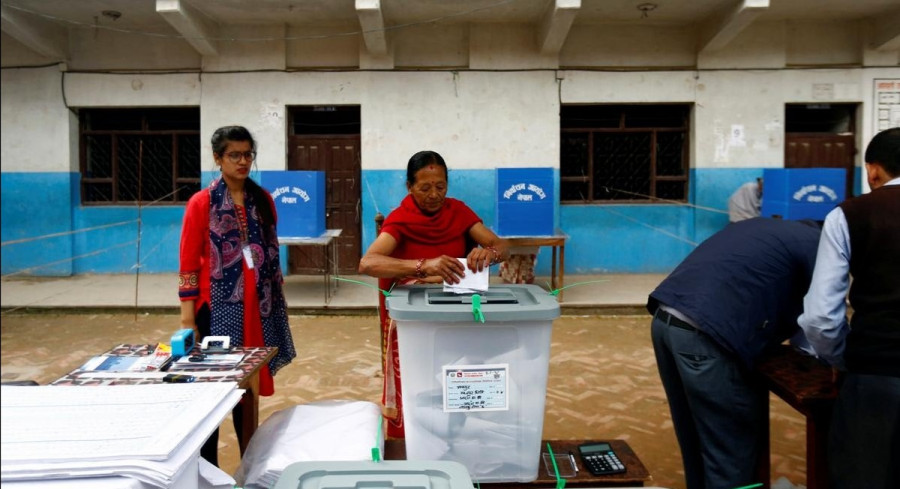National
Election Commission backtracks on its decision related to women’s representation at local level
Now political parties fielding just one candidate for one of the two top local government positions are not compelled to nominate women.
Tika R Pradhan
Five days after cross-party women leaders urged both Prime Minister Sher Bahadur Deuba and Chief Election Commissioner Dinesh Thapaliya to ensure that the parties fighting upcoming local elections as an alliance field women candidates in one of the two top positions in local government, the Election Commission on Tuesday has done just the opposite.
While the commission’s earlier directive had expressly instructed parties fighting local elections to field women candidates for one of the two top posts—mayor/chair and deputy mayor/vice-chair—of local government, the poll body’s statement on Tuesday said parties should give priority to women while fielding candidates for the two top posts.
Women leaders from various parties have objected to the commission’s new statement saying it has given parties, especially those fighting elections as an alliance, a leeway not to field women candidates.
Issuing a statement on Tuesday, the Election Commission said that clause 6 of the directives issued to the political parties last week has been corrected. “We have corrected clause 6, which should read “the political party fielding only one candidate between mayor and deputy mayor or chairperson and deputy chairperson of a local unit should give priority to women while nominating candidates for the positions,” states the statement signed by its spokesperson Shaligram Sharma Poudel.
This, according to women leaders and observers, can significantly reduce women’s representation in the local governments this time.
“It's an unfortunate decision by the Election Commission. We have no option but to continue creating pressure on the authorities,” Renu Chand, a central committee member of the CPN (Maoist Centre), adding, “The problem is with the political parties who included the issue of inclusion in the constitution and we have to remind them time and again of the constitutional provisions which they keep forgetting.”
Section 17 (4) of the Local Level Election Act-2017 makes it mandatory for a political party to field a woman as candidate for either chief or deputy chief at the local level. However, the same law says that the legal provision requiring one of the two candidates for chief or deputy chief at the local level to be a woman is applicable only when a party fields candidates for both the positions.
To make the election management gender-friendly and inclusive, the election body on March 30 had issued a 17-point directive to all the 79 political parties registered for the local polls slated for May 13.
Point number 6 of the directive stated that political parties fielding candidates for just one of the two top positions in local government should nominate women candidates.
But after pressure from political parties, the election body has backtracked on its earlier decision.
Article 38 (4) the constitution says that women will have the right to participate in all state bodies on the basis of the principle of proportional inclusion.
Similarly, Article 42 says socially backward women, Dalit, indigenous people, indigenous nationalities, Madhesi, Tharu, minorities, persons with disabilities, marginalised communities, Muslims, backward classes, gender and sexual minorities, youths, farmers, labourers, oppressed or citizens of backward regions and indigenous Khas-Arya shall have the right to participate in the state bodies on the basis of inclusive principle.
Maoist Centre leader Chand says political parties would be held responsible if women’s representation at the local level decreased this time.
Another woman leader of the main opposition CPN-UML Shanti Pakhrin said from the new statement, it is clear that the Election Commission could not withstand the pressure from political parties.
“When we met the chief election commissioner, he had told us that commission officials were under immense pressure from political parties,” Pakhrin told the Post. “Now we have the results. The parties have torn apart the constitutional provisions.”




 8.88°C Kathmandu
8.88°C Kathmandu















